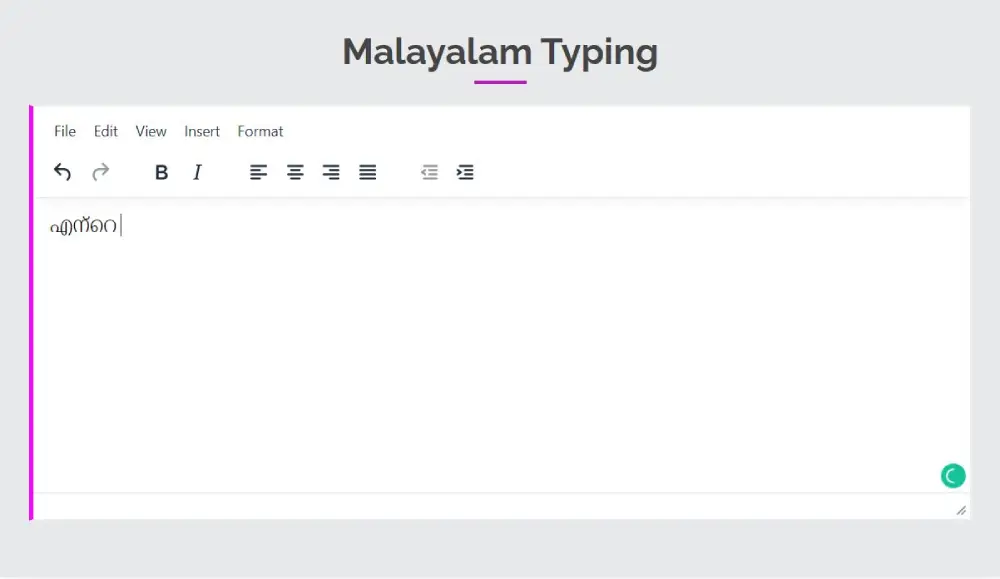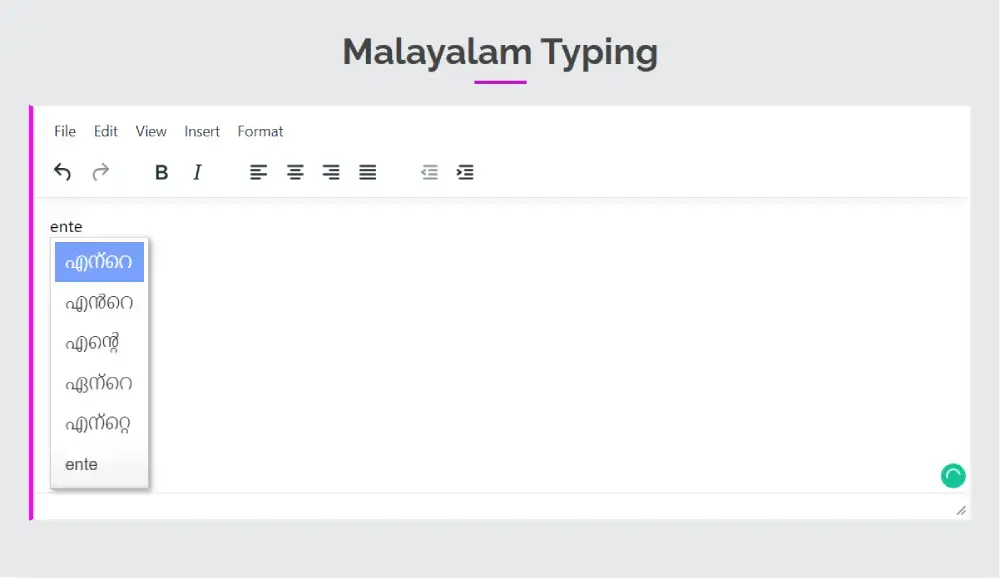Get Started with Our Greek Typing Tool
Our Greek typing tool makes it easy to type in Greek without any technical knowledge or software downloads. All you need to do is visit our website and start typing! Our intuitive layout ensures that you`ll be able to quickly navigate the page and get started with your typing. Best of all, you don`t have to worry about accuracy - our tool will automatically detect and correct mistakes as you type! In mobile when you type in all the given text-area space, your content fills the text-area and if you want to increase the size of the text area, you can expand its size each time you press the button EXPAND and after completion and start a new content typing press the button SHRINK and the text area will be back to its original size. On the desktop, once the text has been typed into the desired language, all you need to do is select it all, press “ctrl-c,” copy it, and then press “ctrl-v” to paste it back into your document. When you are on mobile just simply click the COPY button and copy all your text and then paste it into your desired location. And also clear your text area after typing press the CLEAR button and you can type other contents as you like.
Unable to find the correct transliterate?


Greek Language
Greek is an Indo-European language that has a long and rich history. It is the language of the ancient Greeks, and it has been spoken in various forms for over 3,000 years.
The Greek language has a rich and complex grammar, with many different verb forms, noun declensions, and adjective forms. Modern Greek is the official language of Greece and is spoken by over 11 million people worldwide. It is also used as a second language by many people who are of Greek descent or who have lived in Greece for an extended period of time.
History of Greek
Greek is an ancient language with a long and rich history. The earliest written records of the Greek language date back to the Mycenaean civilization of the late Bronze Age (1600-1100 BCE). This early form of Greek, known as Mycenaean Greek, was used for writing in a script known as Linear B.
After the decline of the Mycenaean civilization, ancient Greek developed into two main dialects: Attic and Ionic. Attic was the dialect of Athens and became the standard dialect of the Greek world during the classical period (5th-4th centuries BCE), while Ionic was used primarily on the Aegean islands and in Ionia (on the west coast of modern-day Turkey).
Classical Greek was used by the great authors of ancient Greece, including Homer, Sophocles, Aristophanes, and Plato. It was also the language of the New Testament, as well as of many early Christian writings.
After the decline of the Roman Empire, the Greek language underwent significant changes, and a new form of Greek, known as Medieval Greek or Byzantine Greek, emerged. This was the language of the Byzantine Empire and was used for both literary and everyday purposes.
The Greek language has continued to evolve over time, and today`s modern Greek is heavily influenced by its classical heritage, but also has many words borrowed from other languages, such as Turkish, Italian, and French. Modern Greek is the official language of Greece and is spoken by over 11 million people worldwide.
Greek Alphabet (Ελληνικό Αλφάβητο)
Consonants (σύμφωνα)
Beta (Β, β), Gamma (Γ, γ), Delta (Δ, δ), Zeta (Ζ, ζ), Eta (Η, η), Theta (Θ, θ), Iota (Ι, ι), Kappa (Κ, κ), Lambda (Λ, λ), Mu (Μ, μ), Nu (Ν, ν), Xi (Ξ, ξ), Omicron (Ο, ο), Pi (Π, π), Rho (Ρ, ρ), Sigma (Σ, σ), Tau (Τ, τ), Phi (Φ, φ), Chi (Χ, χ), Psi (Ψ, ψ)
Vowels (φωνήεντα)
Alpha (Α, α), Epsilon (Ε, ε), Iota (Ι, ι), Omicron (Ο, ο), Upsilon (Υ, υ), Omega (Ω, ω)
Numbers (Αριθμοί)
1 - ΕΝΑ (ENA), 2 - ΔΥΟ (DYO), 3 - ΤΡΙΑ (TRIA), 4 - ΤΕΣΣΕΡΑ (TESSERA), 5 - ΠΕΝΤΕ (PENTE), 6 - ΕΞΙ (EXI), 7 - ΕΠΤΑ (EPTA), 8 - ΟΚΤΩ (OKTO), 9 - ΕΝΝΙΑ (ENIA),10 - ΔΕΚΑ (DEKA)
Transliterate English to Greek
Our online typing system will allow you to transliterate English into Greek. We use the Google transliterate feature to translate, which is very fast and accurate. You can simply convert each word, just press the space bar after typing them. Also, you can get a choice option dropdown if you press the back key. You can edit your text with a text editor to bold, italic etc. Format and style all your converted Greek content. We use some autocorrection features to transliterate your broken words without retyping them. Which saves you more time in typing.
Press (Ctrl+G) to switch between English and Greek. Also, you can save them as txt or doc for your further use.
Translate vs Transliterate
Translation refers to the process of converting written text from one language to another while preserving the meaning of the original text. Translation involves converting the words and phrases of a text from one language to their equivalents in another language, taking into account the context and cultural differences between the languages.
Transliteration, on the other hand, refers to the process of converting written text from one script (alphabet or writing system) to another, while preserving the sounds of the original text. Transliteration involves converting the letters and characters of a text from one script to their equivalents in another script, without necessarily preserving the meanings of the words.
For instance, the Greek equivalent of the English phrase "Hello, how are you?" is "Γεια πώς είσαι?" This translation keeps the original phrase`s meaning. On the other hand, the English phrase "Hello, how are you?" can be transliterated into the Greek alphabet as "χελλο, χόβολη άρη ιού?", which preserves the sounds of the original phrase but not necessarily it`s meaning.
Translation and transliteration are both useful tools for helping people communicate and understand written text in different languages and scripts. However, they serve different purposes and involve different approaches to converting written text.
